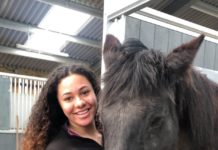54-year-old successful architect Gavin Hale-Brown shares his account of surviving COVID-19’s cruelty
Covid 19, Coronavirus, SARS-CoV-2, the plague… well as one who has been infected, who has ended-up in hospital with it, I can report it is like a heavy cold, it is like flu, it is like a bad allergy. But that’s only the start or half the story. Perhaps your taste wanes, your sense of smell is dimmed, but if you are unlucky you will feel the slow creep of a damp cloth over your mouth and nose. From nowhere your aching head, that you just can’t shake off, is not something you think about.
As you try to stand, a new-you has appeared, one where you are exhausted by the simplest tasks, where there simply is not enough air in the room you are in, where the urge to sleep is as frequent as the need for water.
It is the stealth that surprises. From nursing your ‘flu’, you lounge on a couch, sleep on in bed, willing it to recede. But it is only the oxygen levels that allow you to track what is happening. A new measure of health, never before a concern, is suddenly one we track assiduously. Rude health shows levels of 96-100%, so you watch and watch the little numbers. From 95 to 93; you hope, you will it to climb, but, no, it persists to slide 93 to 90; you worry but think “not me, I’m fine it’s flu”. And then you are below 90, into the 80s. However you try to adjust your breathing it makes no difference.
So you call an ambulance, your “20 minutes critical promise” becomes a 9 hour tightrope, the handlers urge you to find another way, your own way there. So you shuffle yourself off, helped by worried family to the quiet edifice of a pandemic hospital, empty of all bar those others desperate for help. The shuffle gets you passed a temperature gun. You are there because of “it”, you are there because you are carrying “it” – your energy only allows you to shuffle as you are told.
Pallid, grey, you wait, feeling your infectiousness as you watch your face stare back from some reflection. Somehow you have no colour, your flesh is a colour you have not seen before – more a clay mud than human. The crisis around you is silent, hidden behind double doors and sanitised walls. Until a clinician clamps your finger, the digital numbers far too low for you to be sitting alone, far too low for you to be left surrounded by others.
Suddenly the urgency appears, the crisis is opened to your eyes and ears. Pressed through double doors to the inner turmoil. People and chatter, all busy or focused, you sit, no energy, no breath to fight your corner. You sit and wait. Age seems to have overtaken you; how old am I? People ask questions of you as though your intelligence has vanished, your comprehension has stalled, but you nod and acquiesce.
Around you voices raise, no beds, no space, no staff. You wait. At last a space is found, an inner room, no daylight, someone’s dinner left on the trolley, medical wrappings on the floor. But it is somewhere. So you sit, you wait. Your arms are punctured by needles, routes for your new supplies. Bags are hung and drained, more, different, you don’t know what. And at last you are fed two tubes up your nostrils, the sudden flood of oxygen as sweet as an alpine breeze, yours to drink in.
Chaos everywhere, people come, people go, you are the only static one tethered to your trolley by the multiple feeds in your arms. You are driven around the corridors, slid into scanners, the fog on your lungs visible. A rolling fog sliding in from all the edges of the familiar TV-medical-show-pattern of lungs. The corridors empty, silent, as you are propelled back to your windowless room. This room your own, the extent of your world for days. The chaos negates the ability to feed, your plague denies you an appetite, time slows, not-noticed-days slide by. People rattle at the door, few enter, you have no alarm, your feeding lines pinning you back. Sleep ebbs and flows.
Then suddenly you are moving. A new room, one with a bed not a trolley. You are driven to space with a mattress and toilet. Relief, you can see people, you can see help, you can see the sky. Still your plastic tubes feed the air deep into your lungs. And then, almost as not-seen-coming as going in, you are freed. You can sustain 93%, even 95% – beds are needed, time to go.
You shuffle off, with the cloying phantom presence of material that once secured life-saving tubes, your breath somehow mediated by that non-existant fabric. But you can go.
The corridors are silent, the atmosphere of morgue, a church. Not a soul to see you leave, not a soul to aid your flight. But leave you do and leave you must, seeking the elusive 98%.





